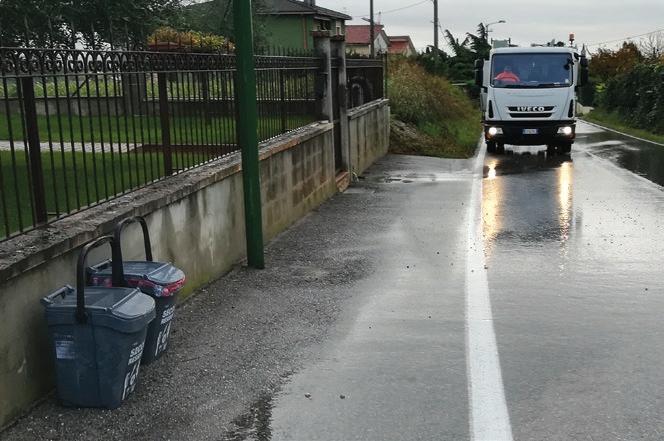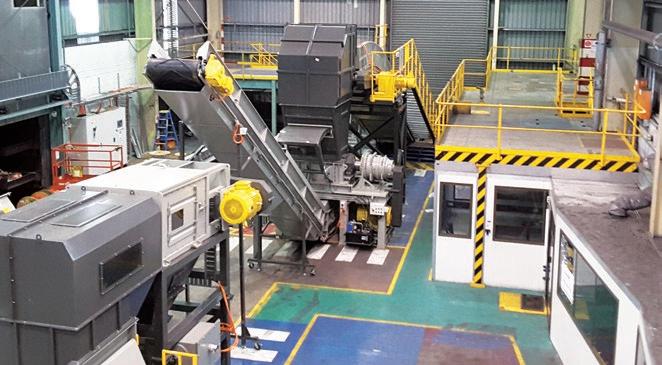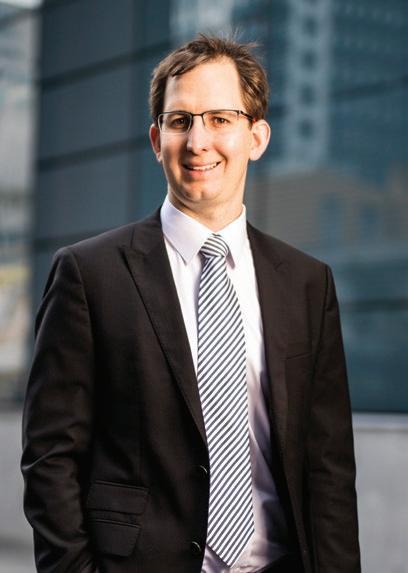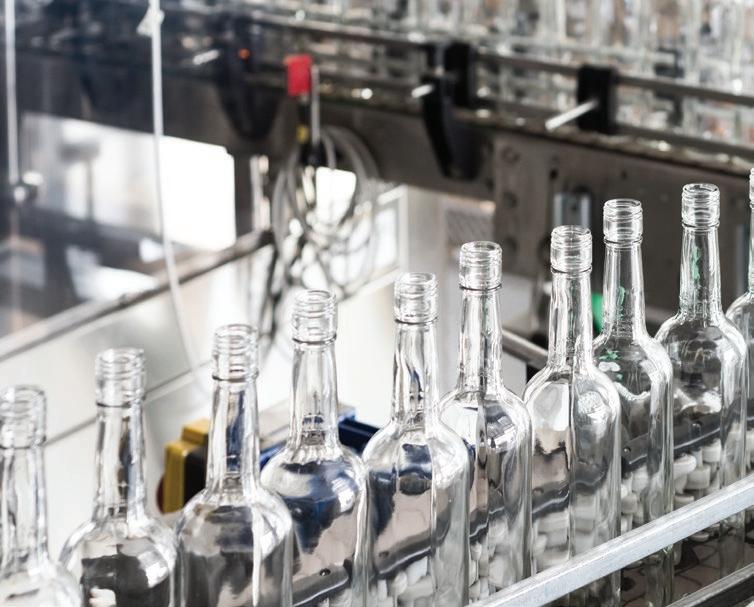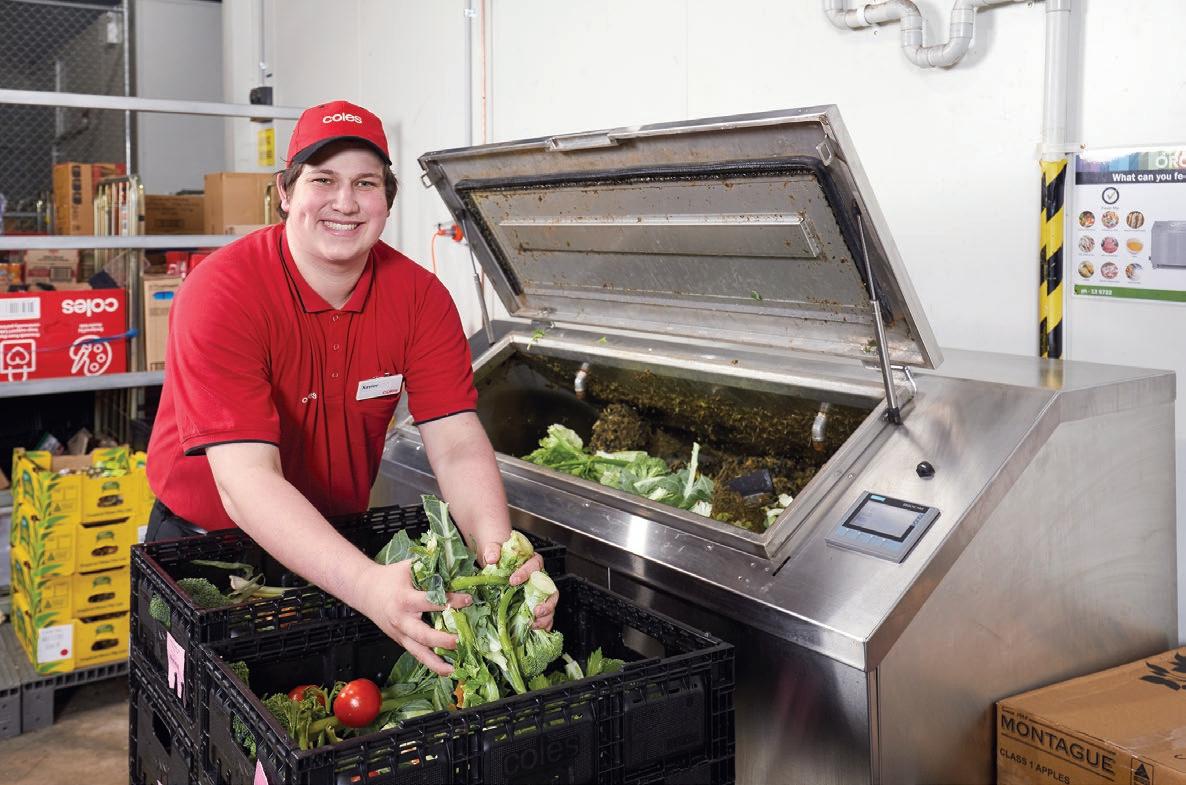
9 minute read
SCALING UP
Coles team member Xavier uses an anaerobic digester being trialled at its Southland Store in Melbourne.
COLES TELLS WASTE MANAGEMENT REVIEW ABOUT THE SUPERMARKET’S INITIATIVES TO TACKLE FOOD WASTE, INTRODUCE RECYCLABLE PACKAGING AND DIVERT WASTE FROM LANDFILL.
The commercial and industrial (C&I) sector generated around 20.4 million tonnes of waste in 2018.
Within this landscape, the large supermarkets are taking great strides to reduce their own back-of-house general waste, divert food waste from landfill and embed more sustainable practises into their own products.
Coles is one organisation with the scale to make a difference. The morethan-100-year old supermarket chain serves millions of customers through more than 820 retail outlets around the country. Through investment in experienced sustainability strategists, the company has mobilised its stakeholders to work towards several ambitious targets.
Vikas Ahuja was approached by Coles five years ago to take on the role of Head of Energy and Sustainability at Coles head office in Melbourne.
An engineer by trade, Vikas has worked in various areas, including in government policy around renewables and running his own sustainable consulting business within an infrastructure engineering company.
Having analysed the onset of climate change from a variety of lenses, including policy and finance, Vikas is now tackling it from a retail perspective.
“As a national retailer, our commitment is to respond to what our customers are asking for. The feedback we get is that food waste and packaging are the two most significant issues for sustainability,” Vikas explains.
In 2018, Coles set a target to divert 90 per cent of its waste from landfill by 2022. It also set a task to halve its food waste from Coles supermarkets by 2020 and recently announced it had hit this milestone one year earlier than planned.
The targets form part of Coles’ food waste and packaging strategy, which sets out commitments that include donating unsold edible food from every Coles supermarket, ensuring all Coles brand packaging is recyclable by 2020 and working with suppliers to reduce food waste.
Vikas says that in 2018, Coles
diverted more than 70 per cent of its waste from landfill.
In ensuring all packaging is recyclable by 2020, Vikas says that 80 per cent of Coles Brand, fresh produce and meat packaging is already recyclable via kerbside or its in-store soft plastics Redcycle program. The company is now working through the remaining products.
He says that through this process, it will be critical that food meets safety standards, is convenient for customers and minimises unnecessary waste.
The remaining 20 per cent includes traditionally challenging areas such as PET meat trays, with Coles looking at a program to move all of its packaging out of expanded polystyrene.
Since 2014, Coles Brand fresh beef, pork and lamb mince has used Plantic – a material recyclable through kerbside that contains a renewable raw material and a mixed of recycled PET.
To reduce food waste, Coles has partnered with food rescue organisations SecondBite and Foodbank.
SecondBite is connected to 95 per cent of Coles supermarkets, and 100 per cent of distribution centres are either connected to SecondBite or Foodbank.
Last year, the company donated close to 20 million meals to food rescue organisations. Coles then upped the ante and recently announced its 100 million meals target by 2020 had also been achieved a year earlier than planned.
“This accomplishment comes off the back of us better aligning our processes with SecondBite and Foodbank,” Vikas says.
“This accomplishment comes off the back of us better aligning our processes with SecondBite and Foodbank,” Vikas says.
For example, Coles broccoli and cauliflower rice, carrot and pumpkin noodles use vegetables that do not meet the specifications for the whole vegetable products.
Coles Brand banana bread also uses 600 tonnes of bananas per annum, which may have otherwise gone to landfill.
As part of its plans to accelerate its food waste strategy, Vikas says Coles is looking at a number of options. These include tackling food that presents a food safety risk.
“For the stores that have instore cutting of meat, the remaining fat and bone are collected by companies that typically will render it into pet food which helps us stay connected to our community,” he says.
Vikas says that Coles is currently actively trialling a range of technologies, including digesters, dehydrators and waste-to-energy to manage waste in store not suitable for human consumption and where stockfeed barriers exist.
Instore anaerobic digesters are being trialled at three Coles stores, including Southland and Surrey Hills in Melbourne and Shell Harbour in NSW.
At Coles local in Surrey Hills, Melbourne, the company is trialling the digesters as part of a zero-food waste initiative.
Coles has also partnered with waste-to-energy companies EarthPower in NSW and Richgro in Perth.
Vikas says the company is now turning its focus to looking at additional partners in other states as well as potentially small-scale wasteto-energy at individual supermarkets.
One of Coles’ most best-known initiatives was its ban on single-use plastic bags, introduced in 1 July 2018. Since then, more than 1.7
Vikas Ahuja was approached by Coles five years ago to take on the role of Head of Energy and Sustainability at Coles head office in Melbourne.
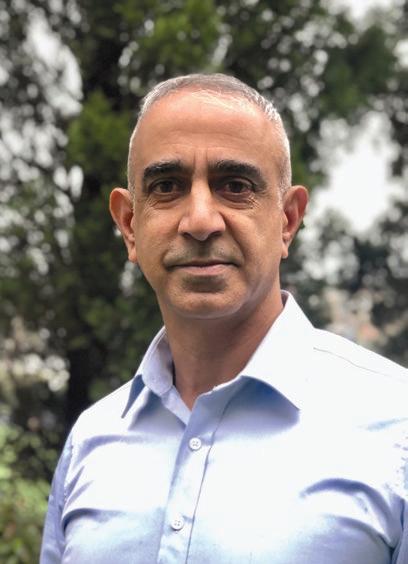
billion single-use bags have been removed from circulation.
Vikas says that the plastic bag ban has been successful well beyond what could have been imagined.
He attributes this to two reasons, with one being the mobilisation of businesses such as Coles, waste managers, bag providers and the public at large all working together to address the issue.
The second is creating good consumer habits, with behaviour change occurring over time.
In terms of improving on its bag reductions, Vikas says that Coles is currently looking at a range of options, including bags with high proportions of recyclable content.
Vikas says Coles remains closely aligned the National 2025 Packaging Targets, which is helping government, business, waste management service providers, recycling companies and supply chains work towards entirely recyclable, reusable or compostable materials.
Food for soil
BY INTRODUCING FOOD WASTE RECYCLING AND A DEDICATED SUSTAINABILITY PORTFOLIO, THE MELBOURNE CRICKET GROUND IS HITTING MORE THAN 75 PER CENT LANDFILL DIVERSION.
Known simply as the “G”, the Melbourne Cricket Ground (MCG) attracts more than three million people each year.
With a capacity bigger than most regional towns, the seven-day-aweek stadium is often filled to the brim, hosting major AFL matches, cricket, concerts and Australian and international soccer.
But its ability to manage its waste in a smarter way is largely a hidden success story, reducing total waste produced by 259 tonnes, despite increasing its patron numbers by 197,214 in 2018.
Such was its commitment to waste management that it pragmatically invested in three compactors to prevent waste going to landfill.
Vince Macolino, the MCG’s Environmental Sustainability Specialist,

says that in one isolated occurrence, the stadium was advised through its contractor KS Environmental that its recycler was no longer operating from midday on a Saturday and were closed on Sunday.
“As an events-based business, we operate Friday, Saturday and Sunday. Our biggest days are Saturday and Sunday and we can have 90,000 people on Saturday that generate waste that needs to be recycled,” Vince explains.
“The only option was to send it to landfill but for us at the Melbourne Cricket Club that’s not an option – we’re not taking steps backward, we’re going forward. So in discussions with KS, we realised that if we buy new compactors, we could store the waste and send it to Dandenong to be stored until the facility opened on Monday.”
Its merely a small aspect of the MCG’s achievements – a stadium that set itself a key performance indicator of 75 per cent landfill diversion and surpassed it in 2018.
Since joining the MCG at the end of 2013, Vince has helped raise the bar with support from the team, lifting its diversion rate by 15 per cent from what was just 20 to 30 per cent a decade ago.
Eliminating plastic straws, recycling organic waste onsite and spreading the subsequent compost on the surrounding lawn are just a few of the recent achievements of the MCG. The MCG has about 26 different
Vince Macolino recently moved into the MCG’s new sustainability role.

waste streams that are separated and processed.
Most recently, it demonstrated its commitment to sustainability by creating a dedicated sustainability portfolio, as Vince moved on from his role as venue presentation coordinator.
He says that one of the MCG’s proud achievements was the installation of a food dehydrator. After taking the initiative in 2016 to audit the stadium’s waste management processes, Vince took a tour of major food waste recycling sites, including the Melbourne Zoo, Melbourne University and Degraves Street.
“We found out that the Gaia unit would be best for the waste we’re generating out of our operations. Due to the amount of organic waste we were processing, it was a threeyear payback period.”
Since then, the MCG has
implemented a “zero waste to landfill” approach at its corporate suites, collecting all organics waste and processing it via the dehydrator.
Introducing Method recycling bins to promote good source separation, the MCG went from sending 120 80-litre organics bins to landfill per event to nothing on its corporate suite level. The dehydrator unit produces a compost known as SoilFood which is spread on the MCG’s surrounding parkland – Yarra Park.
“By blending SoilFood with sand to create a good ratio and spreading it through the park, we no longer need to transport the majority of our organic waste to compost facilities. We’ve potentially freed up space at those facilities for other users and closed the loop, while applying a highly nutritional soil food to the park lands,” Vince says.
From Boxing Day 2018, the MCG phased out plastic straws in partnership with Epicure. It has also begun trialling chemical-free sprays that ISS Facilities Services have implemented which reduced the amount of chemicals required to clean the stadium.
A bin washing water unit was also installed that saves more than 1000 litres per day. Rather than just establishing soft plastics collection through the Redcycle program, the MCG has taken it a step further to purchase bollards for Yarra Park made from the material through Replas.
Vince says the MCG will continue to improve its processes and reduce contamination into the future, as he attended this year’s Waste 2019 conference to discover some of the industry’s latest innovations.
He says that the MCG is now working with Epicure to put on sustainable ambassadors at event days that would inspect bins and engage and educate staff to reduce contamination.
The stadium is now looking at a range of options for compostable packaging. Vince remains optimistic that big changes are on their way. While the MCG hit 83 per cent diversion in 2018, Vince hopes to one day reach 90 per cent. This may include looking at new areas such as compostable bins, further engaging with patrons and spreading environmental messaging by tackling what Vince says are the little “one per cents”.
“Moving into the role of environmental and sustainability specialist has given me the opportunity to look at the strategy of the MCG for the next three to five years and put together more policies and governance in this space.”
“Looking at it from a procurement point of view and getting our environmental management system up and running will set some clear direction and targets and a vision to drive us into the future.”


